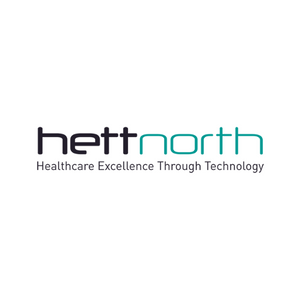As the NHS continues to work to reduce the elective backlog, there’s great pressure to find more effective and efficient ways to deliver care, reduce waiting lists and implement prevention activities for the groups who are most in need. Data and data-driven innovations could be part of this solution, but how exactly can data help improve patient outcomes?
How can health data help the NHS overcome current challenges?
There is great potential for the NHS to benefit from the data generated, collected and stored by the NHS during the routine delivery of services. It would assist the NHS in learning from every patient interaction to gain a better understanding of health and care needs to deliver more effective patient-centred care. Furthermore, the use of this data could help the NHS to overcome some of the challenges it currently faces, including:
Addressing the widening health inequalities
To tackle the issue of health inequalities, the NHS can use data to measure and distribute resources more fairly. With the help of data, healthcare providers can also deliver personalised care by identifying and addressing the needs of high-risk populations.
Addressing the growing elective backlog
Utilising data and data-driven tools can enhance the delivery of outpatient services, improve efficiency and capacity, and ultimately reduce the time it takes for diagnosis and treatment.
Improving health outcomes
Data plays a crucial role in enhancing the quality of healthcare services and patient outcomes. It not only helps in identifying areas of poor care but also assists in making informed decisions regarding care priorities, devising interventions to enhance efficiency and quality of care, and assessing the success of care integration efforts.
What is preventing data from being used more effectively in the NHS?
Although data and data-driven innovation hold immense potential for the NHS and its patients, several longstanding obstacles prevent the NHS from fully capitalising on this potential. These obstacles include the likes of:
- Data is collected through a huge array of systems which leads to a fragmented data landscape, with issues with data quality and inability to link data.
- Challenges in scaling up quickly and successfully
- Potential risks to safety, inequalities and outcomes
Discover more about how data can improve patient outcomes at HETT North
Find out more about how data can be used for better patient outcomes at HETT North on 28th February 2024 in Manchester, where expert speakers will be discussing data and connected systems in greater detail. The packed full agenda includes over 40 hours of CPD-accredited content from over 100 esteemed speakers from the digital health space.
HETT North is designed to unite digital health professionals from across the northern health and social care ecosystem to discuss the challenges and opportunities facing the digital transformation across the NHS. Be sure not to miss out and secure your FREE pass today.
.
Photo by Markus Spiske on Unsplash
%20(1).png?width=500&height=58&name=HETT%20insights%20logo%20RGB-04%20(1)%20(1).png)


